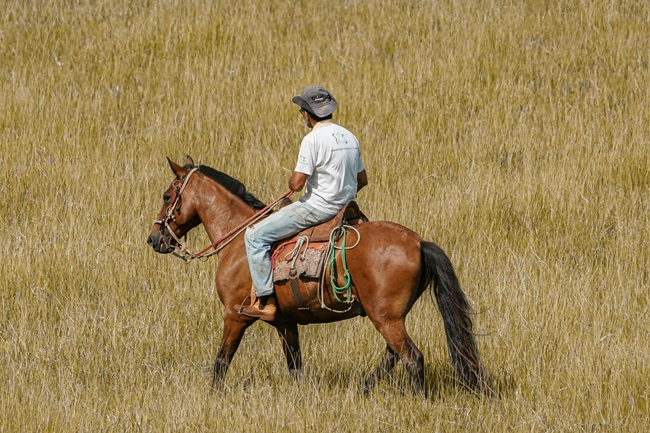
Have you ever heard this? It is said if you put a bunch of clocks with pendulums in the same room, they will eventually tick-tock at the same time. I truly don’t know if it’s true, but I’ve heard it said again and again. If it is true (which I think it is) then what’s weird is they all come to a head and follow one another. They are as one. It’s perfect timing (pun intended.)
In a sense, that’s what you want your horse doing with you. You see, rhythm becomes very important while riding. Interestingly, horses will follow your body movements without even knowing why. They go with your flow – kind of like the clocks going with their own flow. So what? Well, as you know horses don’t have verbal conversations to communicate. It’s done through body language. That language becomes an aid or a cue to get your desired result. When you get your body language going and keep it consistent, your horse will learn what to do when you do something a certain way.
Be careful you don’t change what you do because then your horse won’t understand. It will be like you suddenly started speaking a foreign language. For instance, many horses are taught to move forward when the rider’s legs squeeze his barrel. Squeeze him more and he goes faster. But if you didn’t know that… and your riding skills need a little work… then you may inadvertently ask your horse to go faster and faster because you are squeezing his body with your legs to hang on. Then the rider yells, “Stop, stop, stop!” But the horse doesn’t stop. Why? Because the horse learned that ‘Whoa’ means stop. He has no idea that ‘stop’ means stop (unless he was trained to that, of course.)
When the horse hears ‘stop’ he hears, “XA*#(GJR(%*RJ!)%J”. That’s miscommunication. What people miss is that miscommunication also happens with body language. Never forget that. When you want your horse to do something and you cue him with your body, always use that cue.
Provided by Creatures Corner reader Andy Curry
Related Articles & Free Email Newsletter Sign Up
6 Things to Avoid When Photographing a Horse That is For Sale
How to Evaluate a Feeding Regimen for Equine Training
The Importance of Habit and Repetition During Horse Training


Comment here